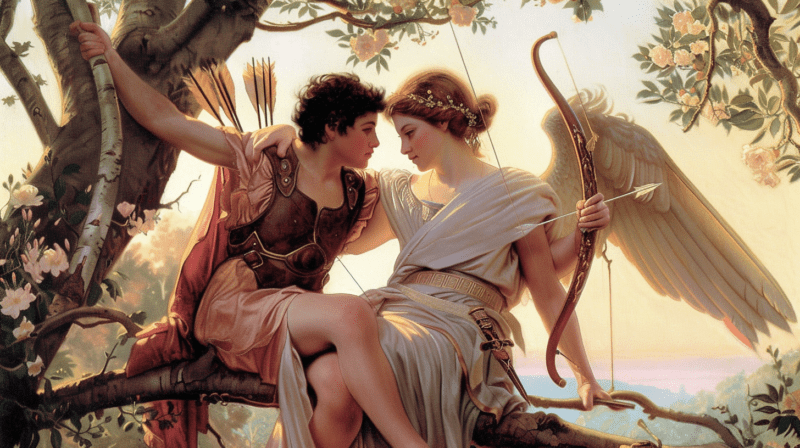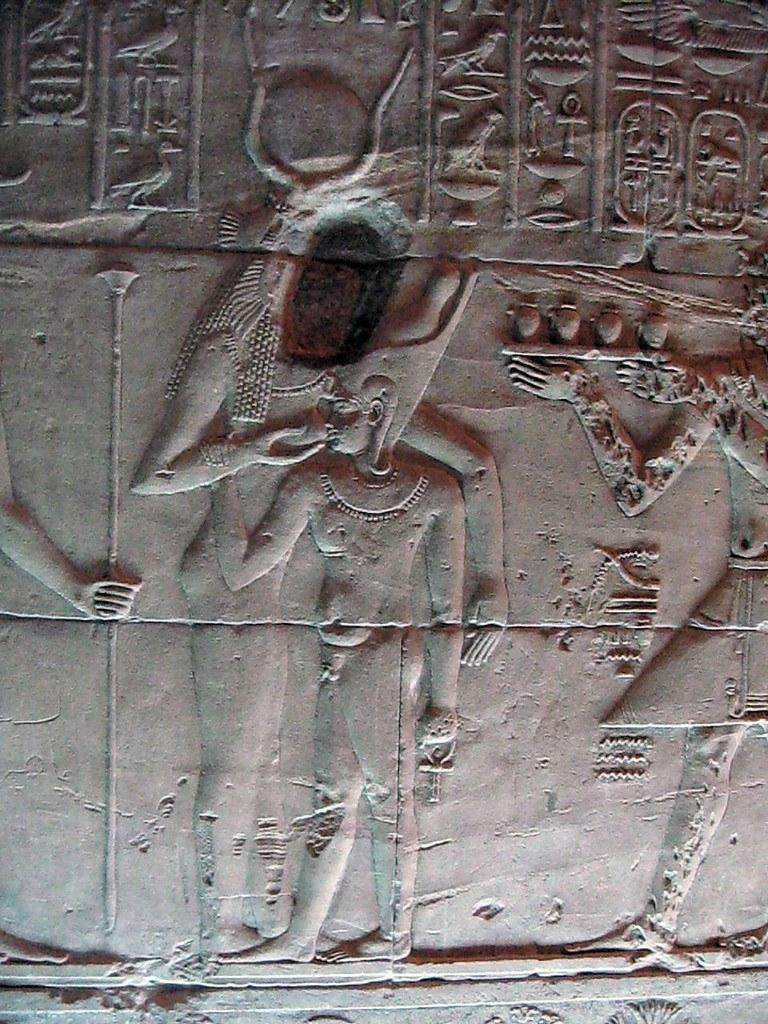One must approach the solemn story of Pandora’s Box, a tale deeply rooted in Greek mythology, with due reverence. It is a chronicle rife with the perils of unchecked curiosity, the gravity of its consequences, and the profound moral dilemmas it presents. As we delve into the analysis of this enduring legend, we shall uncover the layers of symbolism within, gleaning the weighty lessons it bestows upon our understanding of the human mind.
The Genesis of Pandora’s Box
Our story begins in a mythical time when gods and common people coexisted, with the threads of destiny tying their fates together. Here, high above the cumulus, upon the majestic mount of Olympus, resided Zeus, the sovereign ruler of the gods, a figure fearsome in power and grandeur. After the foresighted Titan Prometheus disobeyed him, this god among gods became obsessed with exacting revenge.
The Titan had committed an unforgivable transgression, bestowing upon humanity the divine secret of fire—an act of defiance that breached the celestial decree, challenging the authority of Zeus and disrupting the ordained balance between the heavens and earth. The Olympian’s wrath knew no bounds; his gaze was set unflinchingly on recompense.
Within the sacred confines of his celestial forge, Zeus, in his omnipotence, began a work of cunning and profundity. He sculpted from clay and imbued life to fashion Pandora, the first woman. She was conceived not only as a vessel of vengeance but also as a paradox, a masterwork of divine craftsmanship. Pandora, with a beauty unparalleled and a countenance that would rival Aphrodite’s own, was also granted gifts by the pantheon of gods, each attribute designed to bestow upon her all that was needed for her role in Zeus’s grand design.
The most captivating of Pandora’s bestowed traits, however, was the curiosity instilled within her, an insatiable yearning for knowledge and discovery that knew no satiety, positioning her not only as a creature of wonder but also an agent of fate. It was this curiosity that Zeus envisioned would play a crucial role in enacting his retribution upon humankind for Prometheus’s audacious act of rebellion.
Thus was set the stage for a tale of intrigue and consequence, for within Pandora’s possession was placed a box, an artifact of unknowable content and power—save for one forbidden caveat. This box was to remain sealed, its contents hidden from the world; a single instruction given, a test of wills in a world where the divine and the mortal were perpetually at odds.
Given her insatiable thirst for knowledge, Pandora gives in to temptation, opening the lid and unleashing a torrent of problems that would afflict humanity forever.
Unveiling the Evils Within
As Pandora’s trembling fingers pry open the lid of the box, a cacophony of wails and whispers fills the air. From the depths of the vessel emerge a legion of evils, each more sinister than the last: disease, famine, envy, greed, and all manner of afflictions that sow discord and despair among mortals.
Yet, amidst the chaos, a single beacon of hope remains, nestled at the bottom of the box like a fragile ember amidst the ashes. Though overshadowed by the darkness that surrounds it, hope endures, a reminder that even in the bleakest of times, there is a glimmer of possibility waiting to be kindled.
The Curious Nature of Humanity
At its core, the myth of Pandora’s Box serves as a cautionary tale, warning against the dangers of unchecked curiosity and the consequences of disobedience. Pandora’s fatal choice embodies the timeless struggle between the desire for knowledge and the fear of the unknown, a tension that has plagued humanity since the dawn of time.
Yet, in casting Pandora as the unwitting harbinger of humanity’s woes, the myth raises profound questions about the nature of free will and responsibility. Are we truly in control of our own destiny, or are we subject to the whims of fate and the workings of the gods? Can we be held accountable for actions born of curiosity or ignorance, or are we mere pawns in a cosmic game of chance?
The Moral Landscape of Pandora’s Box
As we navigate the labyrinth of morality laid bare by Pandora’s Box, we are confronted with a myriad of ethical dilemmas and philosophical quandaries. Does the end justify the means, or are some actions inherently wrong, regardless of their consequences? Can we find redemption in the face of our own folly, or are we doomed to repeat the mistakes of the past?
In grappling with these questions, the myth of Pandora’s Box challenges us to confront our own capacity for good and evil, to recognize the shadows that lurk within our own hearts, and to strive for a greater understanding of the complexities of the human condition.
Embracing Hope Amidst the Darkness
As our exploration of the myth of Pandora’s Box concludes, we are imbued with a deep appreciation for the timeless capability of narrative to shed light on the complexities of human existence. Amidst the tumult and despondency, we encounter consolation in the subtle glimmer of hope—a luminary that steers us through the most obscure of nights and encourages us to continue despite formidable challenges.
May we heed the lessons of Pandora’s Box, embracing the complexities of our own nature and striving to chart a course towards a brighter tomorrow. And may we never forget that even amidst the deepest darkness, there is always a glimmer of hope waiting to be discovered, if only we have the courage to seek it out.
Citations:
- “The Myth of Pandora’s Box.” GreekMythology.com, www.greekmythology.com/Myths/Mortals/Pandora/pandora.html.
- Hamilton, Edith. “Mythology: Timeless Tales of Gods and Heroes.” Grand Central Publishing, 2011.
- Graves, Robert. “The Greek Myths: Complete Edition.” Penguin Books, 2011.
- Bulfinch, Thomas. “Bulfinch’s Greek and Roman Mythology: The Age of Fable.” Fall River Press, 2012.





